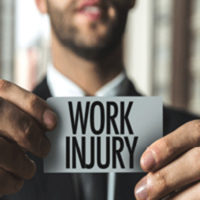Amputations At Work
June 3, 2019 According to a recent press release from the Occupational Safety and Health Administration (OSHA), the agency has cited a North Carolina manufacturing plant for 27 violations of workplace health and safety standards – many of which culminated in a worker’s fingertip being amputated on the job. The man was using a broaching machine (or a piece of industrial metalworking equipment commonly used in the automotive and arms industries) when the injury occurred.
According to a recent press release from the Occupational Safety and Health Administration (OSHA), the agency has cited a North Carolina manufacturing plant for 27 violations of workplace health and safety standards – many of which culminated in a worker’s fingertip being amputated on the job. The man was using a broaching machine (or a piece of industrial metalworking equipment commonly used in the automotive and arms industries) when the injury occurred.
The Hazards Of Safety Violations
OSHA investigators determined a lack of machine guarding as the main cause behind the worker’s fingertip amputation, but while on the scene they discovered a number of other serious and life-threatening hazards. Here are just a few examples of the safety and health standards that the employer was cited for being non-compliant with:
- Failing to conduct atmospheric testing in a confined spaces;
- Exposing workers to electrical, chemical, ladder, crushing, tripping, and struck-by hazards;
- Failing to implement a hearing conservation program and to effectively monitor lead exposure levels;
- Failing to provide first-aid training and protective clothing for employees working with corrosive chemicals, and more.
When employers fail to protect people who are on the job, preventable injuries and deaths occur. Despite the fact that these incidents happen far too often, employers are legally responsible for providing workers with safe and healthy workplaces.
Data On Workplace Amputations
OSHA reports an average of seven amputations in workplaces across the country every day. Amputations are some of the most debilitating and permanently disabling injuries to occur on the job, and certain risk factors are known to increase their likelihood. These factors include:
- Operating unguarded or inadequately safeguarded machines;
- Conducting certain material handling activities;
- Using forklifts, trash compactors, powered, or non-powered hand tools, and:
- Setting up, threading, preparing, adjusting, cleaning, lubricating, and maintaining machines and/or clearing jams.
Amputations can happen in a variety of on the job situations, but OSHA’s data shows that using machinery is one of the most treacherous. Machines with the capacity to inflict amputation injuries include roll bending machines, food slicers, mechanical power presses, powered and non-powered conveyors, meat grinders, milling machines, and drill presses.
Three different machine components are recognized as the most hazardous when it comes to workplace amputations. They are:
- The point of operation, or where the machine performs work on materials,
- All power-transmission apparatuses like belts, chains, spindles, gears, couplings, etc. This also includes machine components that transmit energy, and:
- Any other moving parts that are in motion during machine operation
The majority of workplace amputations are preventable, especially when an employer prioritizes employee safety and ensures compliance with OSHA’s requirements.
Know Your Rights
Workers have rights. Every worker is entitled to a workplace free from conditions that pose the risk for serious harm or death. Employees also have the right to receive training and information about workplace hazards, how to identify and avoid them, and what OSHA’s health and safety standards are – and the training must be given in a language the worker easily and comfortably understands.
Do you have questions about a workplace injury? Give a representative at our firm a call – we can help.
Philadelphia Workers’ Compensation Lawyers at Galfand Berger, LLP Represent Victims of Workplace Injuries
If you were injured on the job, Galfand Berger’sPhiladelphia Workers’ Compensation lawyers can help. With offices are located in Philadelphia, Bethlehem, Lancaster, and Reading, we serve clients throughout Pennsylvania and New Jersey. To schedule a consultation, call us at 800-222-8792 or complete our online contact form.
 Google Screened
Google Screened
